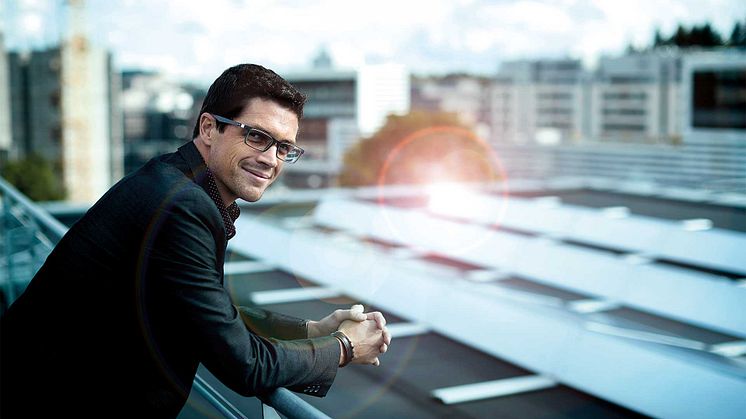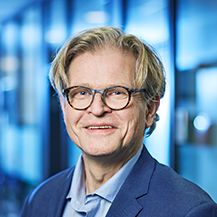
Pressemelding -
Starting innovative research on hybridization of hydropower with floating solar
Floating solar power on a hydroelectric reservoir can provide a reliable supply of electricity and may become an important energy source worldwide. Stanislas Merlet is starting a Ph.D. focusing on how the two energy sources can work together to optimise renewable electricity generation.
“It is a very exciting project that is right at the cutting edge of worldwide research into future renewable energy systems. The World Bank is suggesting a potential on the terawatt scale”, says Stanislas Merlet, who works as a senior advisor at Multiconsult, a leading firm of consulting engineers in Norway and Scandinavia.
Affordable renewable energy
Solar power is widely seen as one of the most promising ways of satisfying the world’s growing demand for renewable electric power. Combining solar and hydropower in a hybrid power plant can smooth out generation fluctuations over the course of days and seasons.
“The cost of solar power equipment has fallen dramatically in recent years. As a result, solar power is now one of the world’s cheapest energy sources, capable of competing with conventional technology like coal and gas in many places. Hydropower has the potential to act as a battery for solar power. A good control system incorporating accurate short-term forecasts for solar power generation is the key to optimising the power plant’s operations”, says Stanislas Merlet.
Having the solar power plant floating on the reservoir avoids potential land use conflicts and makes it possible to use the hydropower plant’s grid connection and thus reduce the project development costs. Solar power requires daylight to produce electricity and hydropower requires precipitations. There is generally little sun during wet periods and there is little water during droughts. This means that the two energy sources can complement one another and optimise electricity generation over the course of days and seasons.
Need further knowledge
“There is hardly any knowledge nor experience in relation to building and operating hybrid solar and hydropower plants, particularly using floating solar power on reservoirs. My research will look at the design and optimisation of this kind of power plant, focusing on emerging markets like Southeast Asia and Africa, where connection to the grid and access to land are often barriers to the development of solar power plants”, says Stanislas.
As part of his Ph.D. project, Stanislas will study how to optimise the integration and regulation of hybrid hydropower plants. He will start by classifying different types of hydropower plants according to their suitability for hybridization with solar power, and will propose design criteria for designing new hybrid power plants that integrate floating solar on reservoirs. The project will also look at methods for optimising combined operation, scheduling and long-term planning.
Great potential
“Solar power has the potential to produce a large part of the world's needs for electricity, but it takes hold of large areas. This is controversial in many places, but the ingenuity of using hydropower reservoirs for solar power is that these areas are already occupied. Stanislas Merlet’s research will be very exciting, and will merge green, digital and innovative market solutions. The Department of Electrical Power Engineering at NTNU has great faith in this”, says Ole-Morten Midtgård, Head of Department and co-supervisor for the work.
The research is being carried out as an Industrial Ph.D. with support from the Research Council of Norway. Industrial Ph.D. research is conducted by a company employee, and the project should be of clear relevance to the company's activities, as well as being of academic value. This project will be conducted in partnership with the Department of Electric Power Engineering at the Norwegian University of Science and Technology (NTNU) in Trondheim, Norway.
“For Multiconsult, it is crucial to be in the front in terms of competences, and this research project is truly innovative and exciting. I am very pleased that Stanislas can further develop his knowledge within renewable energy, while Multiconsult receives insight and expertise in a highly future-oriented and sustainable area, says Jörgen Hasselström, Executive Vice President - Energy at Multiconsult.”
Emner
Multiconsult is one of the leading firms of consulting engineers and designers in Norway and Scandinavia, with close to 3000 permanent staff and expertise spanning a wide range of disciplines. Multiconsult has highly skilled consultants dedicated to the renewable energy sector provide consultancy and design services both in Norway and internationally. Working at the intersection between experience, research and development enables us to create efficient, sustainable energy solutions for the future.




